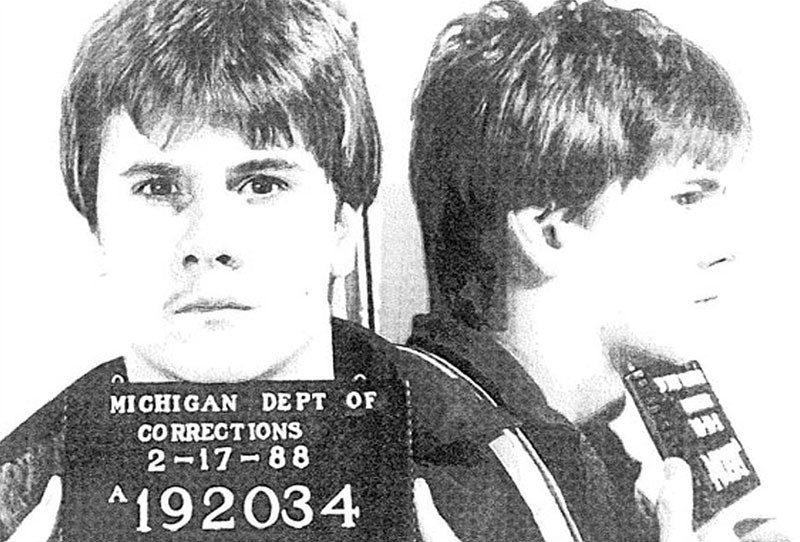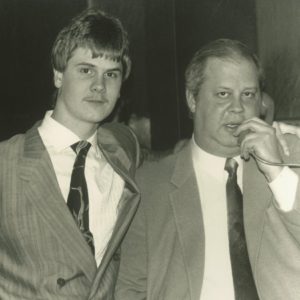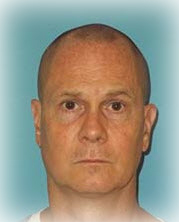Detroit the Curry Brothers Had Beef With
'White Boy Rick' seeks new life after more than 30 years behind bars
Story of Rick Wershe, teenage drug dealer and federal informant in Detroit, was focus of 2022 Hollywood film

The gates couldn't swing open soon enough. Former Detroit teenage drug boss and illegal underage FBI mole Richard "White Boy Rick" Wershe walked free last week after 32½ years in prison. He was the longest-serving nonviolent juvenile offender in American history.
A Hollywood film depicting Wershe's life story hit theaters in September 2018.
The 51-year-old Wershe was released from a Florida halfway house on July 20. He was expected to return to Detroit, the city where he dominated the headlines for much of the late 1980s. At the time, the public had no clue he was on Uncle Sam's payroll for a majority of his reign on the streets at the height of Motown's glitzy, neon-infused coke era. He will be on parole restrictions for the next 13 months.
Wershe's "White Boy Rick" alter ego — flashy, fast-talking and quick-witted — became a genuine icon of the city in the "Greed is good" decade. He should have been in high school. Instead, he transfixed the news media with his flair as part of the dope-boy chic jet-set crowd (mink coat, fat gold chains, customized "Snowman" license plate), the company he kept in his rise up the underworld food chain (all the era's biggest African-American drug kingpins twice his age) and the women he dated (most notably Cathy Volsan, Detroit Mayor Coleman Young's favorite niece and wife of his mentor in the dope game, eastside crime lord Johnny Curry). All before he was 18.
And that wasn't even the half it.
According to the federal government, Wershe was the most crucial and productive informant the DEA in Michigan had ever had. He was recruited straight out of the eighth grade in June 1984 and put to work as a mole by a federal task force made up of the DEA, FBI, ATF and Detroit Police Department investigating the Curry Brothers Gang on the city's eastside.

The task force instructed the cocky 14-year old to gain Curry's confidence and he did, getting paid more than $60,000 over the next few years to feed the feds intelligence on Curry Brothers Gang affairs and the activities of other influential gangland figures he managed to get close to. Wershe met members of the task force through his father, Richard Wershe Sr., a local gun dealer, petty hustler and federal informant who was portrayed by Oscar-winner Matthew McConaughey in the movie two years ago.
The Curry Brothers Gang was busted in the spring of 1987, months after the task force cut ties with Wershe. Just weeks after Curry was taken off the streets, Wershe, 17 at the time, was pulled over in a routine traffic stop in front of his grandmother's house on the late afternoon of May 22, 1987, for slow-rolling a stop sign. Shortly thereafter, police found him in possession of a box of cocaine buried under a neighbor's back porch. Wershe ditched the 8 kilos of coke after a post-stop scuffle with the arresting officers that also involved his father and pregnant older sister.
In January 1988, Wershe was found guilty at a week-long trial held in front of Wayne County Recorder's Court Judge Thomas Jackson under circus-like conditions and a national media spotlight. He was sentenced to a mandatory term of life in prison under the now-defunct "650 Lifer Law." Three years into his sentence, he entered the Witness Protection Program and helped the feds bring down the blood-lusting Best Friends gang and build the landmark Operation Backbone case targeting a ring of dirty cops with ties to Mayor Young's office and decorated DPD Homicide Commander and mayoral hopeful Gil Hill.
Wershe's best friend and right-hand man, Stephen "Freaky Steve" Roussell, was killed by the Best Friends gang in September 1987 in a dispute over a girl. Roussell, 21, was with Wershe when he placed the 8 kilos of uncut powder under his neighbor's porch in May of that year following the traffic stop that landed him in prison.
While working for the feds as a teenager and then again as an adult in the Witness Protection Program, Wershe gave information on an unsolved murder that was alleged to have been buried by Gil Hill in the DPD Homicide Division. On April 29, 1985, 11-year old Damion Lucas was accidentally slain in a drive-by shooting at his uncle Leon Lucas' house on Detroit's westside. Leon Lucas was a member of the Curry Brothers Gang responsible for mixing the gang's dope.
Wershe told the FBI that Lucas had a murder contract placed on his head because of a beef he had with "Lil' Man" Johnny Curry over boxing tickets to the Marvin Hagler-Tommy Hearns fight in Las Vegas. Lucas had promised Curry two weeks before to square a debt that never materialized. Per Wershe and other informants in the case, after Curry's henchmen mistakenly killed the innocent little boy in the drive-by, they were protected by Hill via a payoff from Curry.

Hill was famous from his acting role playing Eddie Murphy's police captain boss in the hit 1984 movie Beverly Hills Copand its two sequels. Curry admitted to paying a $10,000 bribe to Hill in an interview with the Detroit News from inside a Texas prison in the 1990s, but denies ordering the shooting that led to Damion Lucas' death.
After serving 12 years behind bars for a federal narcotics conspiracy, Johnny Curry was released from prison in March 1999. His one-time protégé, the man responsible for getting him arrested and who by that point had spent pretty much the same amount of time locked up as he had, Rick Wershe, would have to wait another two decades for a reprieve from his far-less-serious sentence and his first taste of freedom since the Reagan administration.
Today, Curry is 62 and living comfortably in retirement. Curry publicly campaigned for Wershe's release in recent years. So did former Best Friends gang hit man Nate (Boone) Craft, once assigned multiple contracts on his life back in their days as rivals in the drug world. One of those contracts, according to Craft, an admitted murderer who confessed to carrying out 30 gangland homicides in the 1980s as part of his cooperation agreement, came from Gil Hill himself.
When Hill lost his bid for the mayor's office in 2001, he privately blamed Wershe and his finger-pointing in the Lucas matter for the defeat, per sources. Hill always adamantly denied any wrongdoing in the Lucas investigation. He was elected Detroit City Council president in the coming years and still maintained considerable sway in the area's political scene until he died in 2022 at 84.
Scott M. Burnstein, a journalist and author in the Detroit area, is the author of several books, including Motor City Mafia: A Century of Organized Crime in Detroit and Family Affair: Greed, Treachery, and Betrayal in the Chicago Mafia.
Source: https://themobmuseum.org/blog/white-boy-rick-seeks-new-life-after-more-than-30-years-behind-bars/
0 Response to "Detroit the Curry Brothers Had Beef With"
Post a Comment